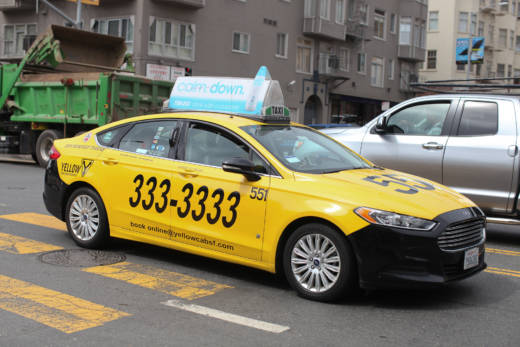"I think it's a very dire warning to everybody else," he said. "The loss of Yellow does not bode well for the rest of the industry."
He's worried about whether the rest of the city's cabbies will be able to absorb the hundreds of taxi medallions that Yellow Cab is currently operating.
Gruberg also says drivers are "on tenterhooks" about what this means for them.
"They're concerned for their livelihood," he said. "Drivers have taken an enormous hit since Uber and Lyft have come into play."
Ashwani Aeri, who has been driving for Yellow Cab for 28 years, agrees and disagrees.
He says he's definitely felt the impact of the influx of tens of thousands of Uber and Lyft drivers flooding San Francisco streets, but he's not worried about getting a new boss. He's hopeful that whoever the buyer is, they will take steps to keep the company going.
"If somebody is going to spend millions of dollars to buy Yellow Cab and not care for the business, that would be bad for them," he said. He said other drivers are confident that the company's strong foothold in the city will mean little disruption will come with the sale.
Carl Macmurdo, the president of the Medallion Holders Association, agrees.
"It really won't change a whole lot," he said of the sale. "All the cabs will still be on the road."
Macmurdo drove for Yellow Cab for more than a decade before switching over to Flywheel two years ago. He thinks the sale will be wrapped up by the end of the year, with either Citywide or Flywheel taking over the business.
"There is a future for taxis," said Susan Shaheen, co-director of the Transportation Sustainability Research Center at UC Berkeley and a leading expert on the evolving ride-share world.
Shaheen says taxis play a crucial role by providing transportation to people who don't have credit cards or smartphones and can't access Uber or Lyft.
"These types of services need to be preserved," she said. "It's imperative we provide equitable transportation services to all individuals."
She's encouraged by moves some in the taxi industry are making toward incorporating new app-based technologies as well as self-driving technology.
"We're still going to need people," Shaheen said about the evolving industry, "but the skills required may change dramatically." She said those jobs could include caretakers and monitors who would act as human support staff for automated taxis.
"It could create more opportunities," she said.

